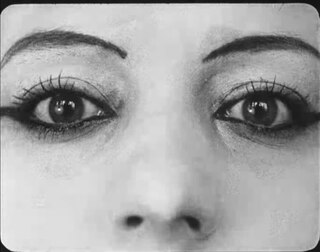This article needs additional citations for verification .(October 2020) |
The Treasures from American Film Archives series of DVDs is produced by the National Film Preservation Foundation (NFPF), a nonprofit organization created by the U.S. Congress in 1997. The NFPF publishes these DVD sets, with accompanying booklets and extensive commentary, to promote public access to the films preserved by the American archival community.
Contents
- The DVD sets
- Treasures from American Film Archives: 50 Preserved Films (2000, encore edition 2005)
- More Treasures from American Film Archives, 1894–1931 (2004)
- Treasures III: Social Issues in American Film, 1900–1934 (2007)
- Treasures IV: American Avant-Garde Film, 1947–1986 (2008)
- Treasures 5: The West, 1898–1938 (2011)
- Awards for the Treasures DVDs
- Film archives participating in the series
- References
- External links
The NFPF's inaugural DVD set — Treasures from American Film Archives, issued in 2000 — was the first video anthology sampling the range of films preserved by American cultural institutions. Featuring home movies, avant-garde films, documentaries, government films, cartoons, newsreels, political ads, and silent-era narratives saved by 18 archives from Alaska to West Virginia, the set presented 50 historically significant works that had never been available before on video. By providing these examples on video, the set helped popularize the idea of the orphan film. When the first edition went out of print in 2005, it was reissued as the Encore edition.
Since 2000, the NFPF has issued five other box sets, each with a specific theme. More Treasures from American Archives, 1894–1931 showcases the creative range of American motion pictures in their first four decades through examples preserved by the nation's leading silent-film archives. It was the first NFPF set to feature audio commentary. Treasures III: Social Issues in American Film, 1900–1934 looks at socially inflected films during the formative years cinema, when virtually no issue was too controversial for the big screen. Treasures IV: American Avant-Garde Film, 1947–1986 is the first multi-artist survey of the avant-garde film movement in the years following World War II. Treasures 5: The West, 1898–1938 explores how the West was imagined and documented in early cinema. Lost and Found: American Treasures From the New Zealand Film Archive presents a sampling of repatriated American films previously existing only in foreign archives.
To date, six sets of DVDs present 227 films on 17 discs for a total runtime of 3,059 minutes (51 hours). All NFPF-produced sets are region-free and playable around the world. These sets are:
- Treasures from American Film Archives: 50 Preserved Films (2000), 50 films on 4 discs.
- More Treasures from American Film Archives, 1894–1931 (2004), 50 films on 3 discs.
- Treasures III: Social Issues in American Film, 1900–1934 (2007), 48 films on 4 discs.
- Treasures IV: American Avant-Garde Film, 1947–1986 (2008), 26 films on 2 discs.
- Treasures 5: The West, 1898–1938 (2011), 40 films on 3 discs.
- Lost and Found: American Treasures From the New Zealand Film Archive (2013), 13 films on 1 disc.
Another box set was announced in 2011, intended for release in 2014: Treasures 6: Next Wave Avant-Garde, with the following titles: Report by Bruce Conner, Radio Adios by Henry Hills, Hi-Fi Cadets by Lewis Klahr, A Visit to Indiana by Curt McDowell and Ted Davis, Plumb Line by Carolee Schneemann, and 11 thru 12 by Andrea Callard. [1] [2] It has yet to be released.










